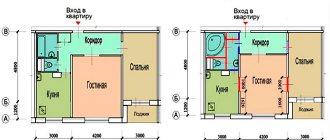Every month an employee receives a salary, in common parlance this is called salary or pay. Upon dismissal, the employee is also entitled to his money for the month worked, which is called settlement money.
But here it becomes unclear how much is generally due, whether the full salary or some part of it should be paid. Does the employee even have the right to receive these paychecks or not? Also, what about dismissal? If an employee is fired, can he receive this salary? It is necessary to sort everything out in order.
To begin with, it is worth considering that settlement money is the money that is due to the employee during dismissal.
How are settlements calculated?
In accordance with Article 140 of the Labor Code of the Russian Federation, payroll is paid for each day worked for the last month. That is, you will not receive your full salary, unless you quit on the payday on which you should have received your salary anyway.
Everything is considered quite simple, we need to divide our salary by the number of days for the month worked and multiply by the number of days. Let's try to understand everything with an example.
Let's assume that you earned 30 thousand rubles a month. You received your salary on the 1st, and the date of dismissal is considered to be the 25th. We take 30 thousand rubles, divide by 30 days, we get 1 thousand rubles per day (we calculated how much we earn per day). Next, we take and multiply this by 25, since we worked that many days over the last month. As a result, it turns out that we are entitled to 25 thousand rubles.
Improvement options
There are the following methods:
| Registration of a housing certificate | the use of which is aimed at obtaining personal living space; |
| Registration of a state subsidy | which should be used for individual construction, acquisition of ready-made real estate, and repayment of mortgages; |
| Obtaining personal living space | through the main queue (in the event that a serviceman arrives registered as needing a change in living conditions). |
What if the job requires an advance salary?
This issue causes confusion among many workers. How to calculate correctly if, for example, we were given an advance a few days ago, and we quit now. In fact, there is no difficulty here either, but you need to look at the employment contract. As a rule, the contract states that the employee has a certain salary, which is paid in the form of an advance and salary.
For example, the contract states that your salary is 60 thousand rubles. 20 thousand rubles are paid in advance on the 1st, and 40 thousand are paid on the 15th. Thus, it turns out that we still need to take our monthly salary, which is 60 thousand rubles. Let's assume that the date of dismissal is the 12th of the month. We take the monthly salary and again divide by the number of days. It turns out 60 divided by 30 days - it turns out that you earn 2 thousand rubles per day. We multiply 2 thousand by the number of days worked. We received our salary on the 15th of last month, it turns out that if we worked from the 15th of last month to the 12th of this month, it turns out that we worked 27 days. In 27 days, we are owed 54 thousand rubles. From 54 thousand we must subtract 20 thousand in advance, and it turns out that we are owed 34 thousand rubles.
You should be careful here; it often happens that both the employee and the employer are confused on this issue. Some employers do this on purpose, counting on the employee’s inattention. It happens that days begin to be counted from the 1st day of the month. For example, under the same conditions, it turns out that we worked 12 days, of which we earned 24 thousand rubles, and it turns out that we have already been given an advance of 20 thousand and the employer owes only 4 thousand rubles. On the one hand, this looks logical, but on the other hand, where did they disappear for 15 days of work?
Wages are always conceived as a month worked, that is, we worked for a month and received our salary. An advance is a payment that we received in advance before the work was completed. Of course, there are exceptions. For example, if you came to work and were not paid for the month you worked, but immediately began to be paid on a certain date, then the situation may be a little different, but as a rule, everything works this way.
It also often happens that the advance and wages are made in maximum proportion to the days worked. Sometimes it happens that your salary is 60 thousand rubles, you get 30 on the 1st, and you get 30 on the 15th. That is, the salary is ideally distributed over the days. But more often it doesn’t work out so smoothly, but, for example, you earn 60 thousand rubles a month, you receive 20 thousand rubles on the 1st, and you receive 40 thousand rubles on the 20th. That is, the salary is evenly distributed over the number of days.
Again, in this situation you shouldn’t get confused either; you need to count not by the beginning of the month, but by the end of it (although this is almost the same thing, many workers still get confused). If you quit, for example, on the 12th, then you should receive your salary in 22 days, not 12.
Consequences of deliberate deterioration of living conditions
If the competent authority reveals the intentionality of the action of the subject of legal relations aimed at worsening living conditions, then, according to Art. 53 and 54 of the Housing Code of the Russian Federation, certain legal consequences may occur for this person. Firstly, such citizens are denied registration as subjects of the needy category.
Secondly, such a cohort of citizens can re-register in the Russian Federation only after the expiration of a five-year period after the commission of illegal actions.
However, in this case, it should be remembered that the fact of detection of a deliberate action with the aim of worsening conditions is not considered a determinant for the fact that persons who were registered on the territory of the Russian Federation will be removed from it.
This is due to the fact that in these situations Art. 56 Housing Code of the Russian Federation. According to the legal norm, the grounds for deregistration are:
- providing incorrect and knowingly false information that contributed to the person being registered;
- illegal actions committed by officials on the territory of the municipality, which led to registration.
Deadlines for payment of wages
Here again it is worth paying attention to Article 140 of the Labor Code of the Russian Federation. The employee must be paid on the day of dismissal. In fact, payment should also be made on the same day, but here it is still worth considering that it happens that you need to make a calculation in the accounting department, since the decision on dismissal could come in the evening.
These are something like problems in organizational matters, so you shouldn’t pay so much attention to them, in any case, you will be paid your salary at least the next day. Of course, this story can also work in the opposite situation; it happens that the employer postpones this day without wanting to pay, then it will be worth doing something, we will talk about this below.
There are situations when you need to make your own calculations by submitting an application for settlement payments. In fact, the law allows for such a situation, since, for example, there was no talk about settlements. Thus, the employee can make a demand for settlement payments.
Legislative regulation
The main regulatory document is the Housing Code of the Russian Federation. Directly in such an act the following legal concept is considered - “deliberate deterioration in the level of living conditions.”
As for military personnel of the citizen category, this concept is given exceptional importance, since any of their actions can be determined as intentional, which can result in exclusion from the queue for receiving real estate for up to five years.
Government Decree No. 1054 regulates the rules and regulations for recording military personnel who apply for housing.
There is no formulation of this concept in federal legislative acts.
At the same time, regional regulations describe specific characteristics regarding what can be considered as a special and intentional deterioration of housing conditions:
| Divorce or wedding | in both the first and second cases, significant changes in living conditions are noted |
| Carrying out legal procedures | associated with shares in property rights - change, allocation |
| Forced eviction | in particular, if a military family rented a living space with good conditions, but did not fulfill its obligations to the landlord (lack of careful attitude to things, property, debts for housing and communal services, noisy behavior, etc.) |
| Transactions | due to which the owner changes or the new residential premises have a smaller square footage (exchange, purchase and sale) |
| Family expansion | in particular, in the case of relocation of children from previous marriages or elderly parents |
| Check-in | residential premises by other persons |
In accordance with the Housing Code of the Russian Federation, it is permissible to register newborn babies at the place of residence of their parents, without taking into account the current provisions on the number of square meters of living space that should fall on one person in the family.
If a serviceman’s turn to receive his own apartment is approaching, the amount of the commission provides for the presence of a small child in his family.
For information on loans to those in need of improved housing conditions, see the article: loan to improve housing conditions.
Unspent vacation
This is also a rather interesting point, since, firstly, it will bring you money, and secondly, it will help to sort out the situation in some way, since there is also a lot of confusion here.
So, first you need to decide how vacations are paid in general. Each employee is entitled to at least 28 days of vacation per year (there are bonuses under various conditions, but we will look at the general case, since everything starts from that).
It is clear that it is unlikely that it will happen that vacation time will come and the employee will just receive vacation pay for the whole year, so we need to calculate how much we are entitled to for the time worked.
To do this, again, you need to make simple calculations. We need to calculate how much we worked in a year to get vacation and calculate the number of days. This is done by dividing the number of days due by the number of months in the year and multiplying by the number of months worked.
Let's look at it with an example. Let's assume that we have worked 7 months since our last vacation. It turns out that we divide 28 by 12, which gives us 2.33 days per month. We multiply these 2.33 days by 7 months and get 16.3 days. Sometimes these calculations are made even more precisely - by day. Let's assume that we worked for 7 months and 12 days. That is, it turns out that we worked 225 days (assume that there were 4 months of 30 days and 3 months of 31 days during these 7 months). Thus, we divide 28 by 365 and get 0.076 - the number of vacation days per day worked. We multiply 0.076 by the previously calculated number of days worked (225) and get 17.1 days. We've won the whole day since last count.
How to calculate vacation pay?
So what do these days give us? Can we go on vacation with them, or can we get money? Upon dismissal, vacation pay essentially becomes the sum of the calculated amount, only they are calculated a little differently. If we calculated simple calculations based on the last month’s wages, then here we take the average annual income.
If we received an income of 30 thousand rubles per month all year, then it’s not difficult to calculate everything. We multiply 30 thousand rubles per month by the number of months in the year, that is, 12. Next, we divide this by the number of days in the year and multiply by the number of vacation days we are entitled to.
Let's look again at an example for greater clarity. Our salary is 30 thousand rubles per month. We multiply it by 12, we get 360 thousand rubles per year - this is our annual income. We divide our annual earnings by the number of days in the year - we get 980 rubles per day. This is how much we earn in one day. We multiply, for example, by the 16 days that we calculated from the first example about calculating vacation days. It turns out that we must be paid settlements for the deductions in the amount of 15,680 rubles.
Quite often, vacation is divided into 2 parts a year, 14 days, for example, in winter, and 14 days in summer. Calculating days here is also not tricky, you can take the total amount of days and subtract 14, or count the days since your last vacation. With the calculation of settlements, everything is also simple here.
A more interesting example concerns situations where wages have changed during the year, since this can significantly affect the amount received. For example, in recent years you have received 32 thousand rubles, and in the last 4 months you have earned 40 thousand rubles. So we need to look at how much we got on average. We take earnings for the last year, the last 8 months we received 32 thousand rubles, and the last 4 months 40 thousand rubles. We add up all these values, multiply 32 thousand rubles by 8 and 40 thousand rubles by 4 months, and then add it all up. It turns out that in a year we earned 416 thousand rubles. Next, the calculation is the same as before, divide everything by the number of days and multiply by the number of vacation days.
How to cheat on getting vacation pay?
This method applies not only to the vacation pay itself, but also to making it easier to receive pay, since there is no need to make additional calculations. We will still make these calculations to show what the trick is.
So, if your salary has changed throughout the year, then if we count the salary per day from the average annual salary, it will be less than we would have received simply for a vacation.
Let us clarify that you often have the opportunity to take a vacation, and at the end of the vacation you will quit. For example, the end date of your vacation is the 15th, and you quit on the 16th. Let's take a simple example, as if your vacation time has come, we have already discussed how to calculate this in such a case. You have all 28 days for vacation.
So, let's start the calculations. What if we just get paid vacation pay? Let's introduce variables. Let's assume that over the last year you had 6 months when you earned 50 thousand rubles, and the last 6 months when you earned 60 thousand rubles. We multiply 50 thousand rubles by 6, and 60 thousand rubles 60 and add them up. It turns out that in a year we earned 660 thousand rubles. We divide this by 365 and get 1808 rubles. Next, we multiply by our vacation days and it turns out that we should be paid 50,630 rubles.
A good amount, but now we can get more. How? We'll just take a vacation. Since we are taking vacation, we will be paid as for regular working days, which are counted according to the last month. So, we take our salary in the amount of 60 thousand rubles, divide it by 30 days, which were in a month, and multiply by 28. As a result, it turns out that we will be paid 56 thousand rubles. We won almost 5,500 rubles.
Here it is worth considering that we also gain experience; it happens that up to a certain number of years, just half a month or a month is missing, but with vacation we gain them.
Here we also take into account the disadvantages of this method - we will not be able to get a new job until we leave the old one. If we have not yet found a new place of work, then why not use this method, but if we already have a new place of work ready, then it is better to take the money and not waste time.
Deliberate deterioration of living conditions
The most common actions in the described case may be:
| Non-compliance with obligations | by agreement, in the case of living in social housing, expulsion, which in the future may result in failure to implement specific mandatory procedures, may become a reason for being registered while awaiting receipt of one’s own living space from the state; |
| Bringing real estate | existing property in a corresponding state, which is defined as unfit for life; |
| Termination of participation | in a housing construction cooperative; |
| Registration of a young child (minor) | who previously lived was registered in another place; |
| Conclusion of a fictitious marriage | or registration of divorce proceedings, when there is a need for the spouse to register in his territory, or in the event of a divorce, the alienation of a share of property acquired jointly. |
What if we didn’t leave ourselves, but were fired?
Even if we were fired, we are still required to pay money for the days we worked. Of course, it is worth considering that if, for example, we were fired for absenteeism, then no one is obliged to pay for them.
For example, you worked for half a month, and then skipped a week, and after this week a dismissal order was signed. That is, you worked from the 1st to the 14th, skipped the rest of the days and the order was on the 21st. You must calculate the settlement in 14 days from the 1st to the 14th.
If you just got laid off, then, of course, you should be paid your salary for all the days you worked.
There are still some pitfalls. It happens that an employee with financial responsibility is also fired for some misconduct at work. For example, you are a seller of a store where you lost a delivery worth 30 thousand rubles. Your salary is 100 thousand rubles (the numbers are fictitious to make it easier to count and understand). Because you lost the supply you were fired. At the same time, you have worked 15 days from your last salary. Thus, having made the calculation by day, we get that in 15 days we should be paid 50 thousand rubles, but we have financial responsibility, so 50 minus 30 thousand rubles, it turns out that we should be paid 20 thousand rubles, and not 50.
Thus, for dismissal, of course, we should also be paid settlement, however, it is worth considering that there are some pitfalls that prevent us from receiving all or some part of our money.
It is also worth considering the terms of the employment contract, which may change this order, and in some jobs, in case of any dismissal due to the fault of the employee, the person does not receive money.









